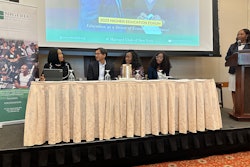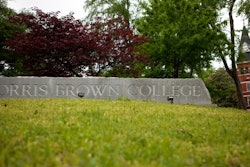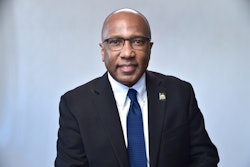Immersed now in her own doctoral studies, Gwen Chodur knows firsthand the essential, non-monetary value that students from other nations add to U.S. colleges and universities.
Brought together in 2016, her University of California at Davis cohort of eight, researching and learning nutritional biology, included an Iranian student, a Korean student and a Malaysian student.
“In that first year, you have seminars and course work on the science. You’re learning how to ask research questions, how to develop a study design,” says Chodur, president and CEO of the National Association of Graduate-Professional Students. “So much of that is stimulated by who’s in your cohort.”
She reaped the benefits of that global collaboration — an exchange, observers say, that is both academic and cultural. But the cohorts following hers weren’t as fortunate, said Chodur, also president of the University of California Graduate & Professional Council. Indeed, politics and, more recently, a pandemic have severely restricted travel from certain countries.
An Institute of International Education (IIE) survey of 700 colleges and universities concluded that there was a 16% drop in all international student enrollment in fall 2020, compared to fall 2019, and a 43% drop in new international student enrollment. After peaking at more than 300,000 new enrollments during the 2015-16 academic year, the tally of new enrollees has declined annually, dipping to less than 270,000 in 2019-20, according to the “Open Doors Report on International Education Exchange.”
Common App reported that, based on admissions applications that met the Jan. 1 and Jan. 15, 2021 deadlines, international applicants from China had declined by 18% compared to applications for the 2019-20 school year. But applications from Brazilian students had risen 41%, Pakistani students by 37%, Indians by 28%, United Kingdom residents by 23% and Canadians by 22%.
In an e-mail to Diverse, Dr. Robert Summers, Middle Tennessee State University’s vice provost for international affairs, wrote, “Our international applications are essentially flat from where they were last year at this time.” Nevertheless, “our incoming exchange numbers are higher than they were pre-pandemic. Given our increase in exchange figures, the fact that our international application deadline is July 1 and the renewed interest that we are seeing from our international partners, we are believing that our number of international students for the fall 2021 intake will be greater than in years past.”




















